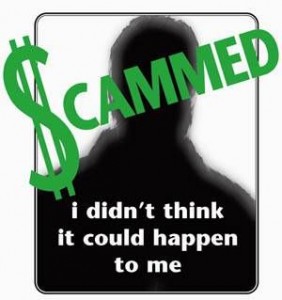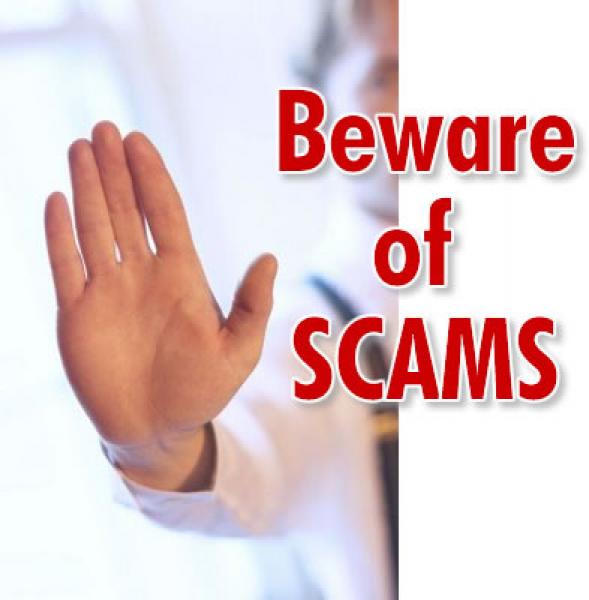Costa Rica News – We have in our last article shared with you “Why Costa Rica Investment Scams Work“. Now we would like to present the Top 10 Investment Scams. All of which you will find in some fashion in Costa Rica. A lot of people come to Costa Rica with no desire to scam others or make a quick buck, but many because of how hard it is to make an honest dollar in CR begin going after it in illegal fashion. The laws and legal system in CR make it so in most cases they get away with it.
 Investment scams come in all shapes and sizes. Con artists often mix and match features of various scams to concoct a swindle that is hard to detect.
Investment scams come in all shapes and sizes. Con artists often mix and match features of various scams to concoct a swindle that is hard to detect.
Below are descriptions of 10 common scams.
Affinity Scams
For better or worse, humans have a tendency to listen to people with whom they have something in common. Scammers depend on this trait. They join hobbyist groups and religious groups, or trade on ethnic similarities.
Unlicensed Sales
Unlicensed brokers or sales agents approach you with financial advice or an investment opportunity. An unlicensed insurance agent might sell fake insurance policies. Or, worse, you could seek advice from an unlicensed broker at a disreputable firm.
The Ponzi Scheme
The Ponzi money-shifting scheme consists of paying initial investors with the funds provided by later investors. As in affinity scams, Ponzi scammers often target groups of people. Since these schemes rely on trust and word of mouth, initiating the scam in a group allows the con artist to spread it quickly.
Internet Scams
Internet scams include e-mail offers and spurious Web sites promoting investment opportunities in nonexistent companies or products. Chat rooms, newsgroups and bulletin boards are also common playgrounds for con artists. Schemers use multiple user names to endorse the company with false testimonials, creating the illusion of legitimacy.
Promissory Note Scams
A promissory note is a written agreement to pay back a loan with a certain amount of interest. Scammers offer an opportunity to invest in high-yield promissory notes, which work much like bonds. But the scammer never actually loans money to a third party. He simply takes the investor’s money. Or he does make the loan, but he pays the investor less than promised.
less than promised.
Prime Bank Scams
The fraudster offers investment opportunities through “prime banks,” overseas institutions normally accessible only to the upper crust of society. Unfortunately, these banks don’t exist.
Unsuitable Investments
Fakers recommend investments that aren’t suitable to the investor’s financial situation. A common variation is the long-term investment pushed on someone for whom a short-term investment would be better.
Senior Scams
Seniors often live alone, depend on others for care and worry about how their retirement savings will support them. Many seniors are eager to believe the confident man who can dispel these fears with his sound advice and exciting opportunities. These scams include life insurance fraud and unsuitable investments.
Commodity Scams
These schemes include investments in gold, silver, rare coins and gems. Con artists have recently capitalized on the political circumstances that have driven up the cost of oil and natural gas. The same circumstances make investments in alternative energy quite attractive. Just because it sounds good for the environment doesn’t mean it can’t be a scam.
Investment Seminars
The scammer invites a hundred people to a seminar, where she presents an unbeatable investment opportunity. You must sign up right then and there. You can’t sign up later because she is leaving town in two hours. So is your money.
Why do these schemes work?…..We will Tell You Tomorrow.


3 comments
My rule IF anyone want to separate me from my money and promise high returns or low returns it is a scam. Here in CR any Tico asking for money is then just that a handout. say goodbye!
Hi there, got a call from a company called Costa Rica called Accredited International (an investment firm?). I am interested in foreign investment, however I want to research and find out if this company is legit; registered with the government, etc. Would you be able to steer me into a direction either to an applicable website, agency etc? Is there a BBB in Costa Rica or something similar?
In the big picture, do you have a listed scams and their associated companies or names?
McPat,
Can you contact me directly via email? I need to know more about the investment and will give you a yay or nay, there are so many scams down here and I would be very wary if sending any money down here. Contact me via dan@costaricantimes.com.
Please send me the info they have sent to you or lets talk via phone.
Thanks,
Dan